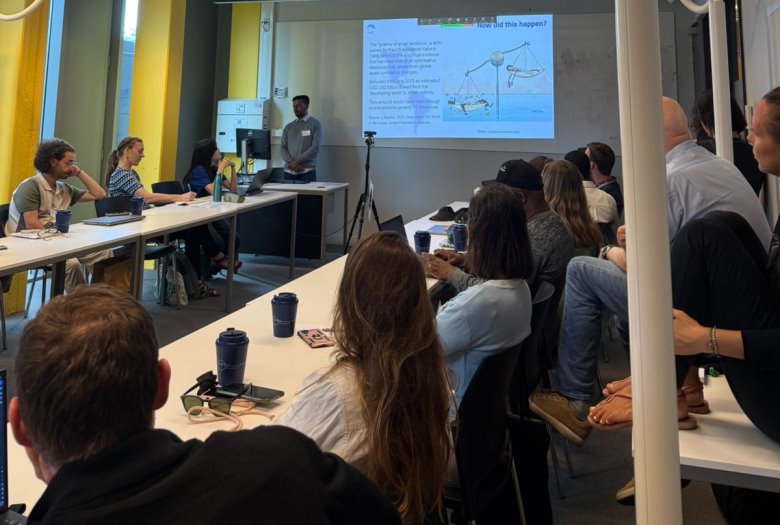This year's conference ,convened from 24 to 27 June 2025 in Amsterdam, focused on the balance between tensions, trade-offs, and the potential transformations required for the future of sustainable marine resource management and governance, thriving coastal livelihoods and healthy, biodiverse oceans. The conference took place right after UNOC3 and in the middle of the Ocean decade (2020-2030). The organisers seized the opportunity to invite reflections on where we currently stand using the 'People and the Sea' lens and the tensions between climate change manifestations and the human activities which are shaping the health and functioning of the ocean and thus of our global wellbeing. Insights, resource access, impacts and capabilities are unevenly distributed resulting in tensions across social, economic, and political dimensions. What kind of transformation is most appropriate given that we can't agree on 'the ocean we want'?
The contribution by Mundus maris was crafted by Cornelia E Nauen and Stella A. Williams. It asked 'Can small-scale success stories turn the tide?' The presentation was kindly ensured by Ruyel Miah, a PhD candidate at the University of Waterloo, Canada.

Ruyel Miah presenting the paper by Nauen and Williams of Mundus maris
The 'tyranny of small decisions', a term coined by the American economist Kahn in 1966, refers to the empirical evidence that harmless individual optimisation decisions may create even global-scale cumulative changes of state as is observable with overfishing, biodiversity loss, and climate change. Here we show a number of success stories in small-scale fisheries and citizen initiatives in Europe and West Africa. These concern, e.g. coastal area protection by fishers in the Mediterranean, collaborations between coastal fisher organisations and environmental NGOs like Environmental Justice Foundation in Ghana and elsewhere in West Africa, a successful citizen petition against the trade of shark fins in Europe, advances of the Africa-wide women's network AWFISHNET and promotion of female scientists through NiWARD. These will be spelled out in some detail to explore the hypothesis.
At heart, they are driven by the need to advance equity concerns which should be at the center of governance, implementation and monitoring, because inequity is currently the norm. Despite these encouraging efforts and local advances, at this point in time, the authors come to the conclusion that the examples provided do not yet scale sufficiently to turn the tide. As a result they argue in favour of much broader citizen movements across sectoral boundaries, e.g. involving small-scale fishers and farmers, the imperative of building stronger social organisations and seek the broadest alliances possible among currently disadvantaged socio-economic actors, scientists and civil society movements to enable structural and policy changes in favour of protecting the commons with cycles of monitoring and participatory governance. That can enable a just sharing of cost and benefits of urgently needed nature recovery in line with overdue advances in implementing the SDGs of Agenda 2030.
The slides with further reading are available here. We thank Ruyel Miah for his effective presentation. More information on the 2025 MARE Conference can be found at the conference website.
